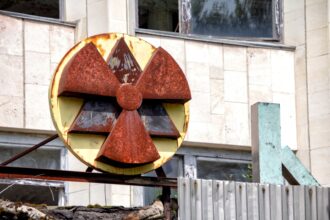In the wake of the September 11 attacks, the landscape of security contracting underwent a profound transformation. The tragic events of that day not only reshaped national security policies but also catalyzed a surge in demand for private security services.
This new era of heightened vigilance and proactive measures necessitated a reevaluation of existing security protocols and the introduction of innovative strategies to address evolving risks. The post-9/11 environment has been characterized by an increased focus on risk management, intelligence gathering, and crisis response. Security contractors have found themselves at the forefront of this paradigm shift, tasked with implementing comprehensive security solutions that encompass everything from physical protection to cybersecurity measures.
As the world grapples with the complexities of terrorism, cyber threats, and geopolitical instability, the role of security contractors has become more vital than ever, positioning them as essential partners in the quest for safety and resilience.
Key Takeaways
- The security contracting industry has evolved significantly in the post-9/11 era, with new challenges and opportunities emerging.
- 9/11 had a profound impact on the security contracting industry, leading to increased demand for security services and a shift in focus towards counterterrorism and protection of critical infrastructure.
- Security contractors face various challenges in the post-9/11 landscape, including navigating complex regulatory environments, managing evolving security threats, and addressing ethical considerations.
- The post-9/11 era presents opportunities for growth and expansion in the security contracting industry, particularly in areas such as cybersecurity, intelligence analysis, and risk assessment.
- Technology plays a crucial role in enhancing security contracting post-9/11, with advancements in surveillance, biometrics, and data analytics improving the effectiveness of security operations.
The Impact of 9/11 on the Security Contracting Industry
The impact of 9/11 on the security contracting industry was immediate and far-reaching. In the aftermath of the attacks, there was a dramatic increase in government spending on security measures, leading to a boom in contracts awarded to private security firms. This influx of funding allowed many companies to expand their operations, hire additional personnel, and invest in advanced technologies.
The demand for security services surged across various sectors, including transportation, critical infrastructure, and event management, as organizations sought to mitigate risks and enhance their protective measures. Moreover, the events of 9/11 prompted a cultural shift within the industry itself. Security contractors began to adopt a more holistic approach to risk management, integrating physical security with intelligence analysis and emergency preparedness.
This evolution was driven by the recognition that traditional security measures alone were insufficient to address the complexities of modern threats. As a result, many firms diversified their service offerings, incorporating elements such as threat assessment, crisis management planning, and training programs into their portfolios. This shift not only enhanced the capabilities of security contractors but also positioned them as strategic partners in organizational resilience.
Challenges Faced by Security Contractors in the Post-9/11 Era

Despite the growth opportunities presented by the post-9/11 landscape, security contractors have faced numerous challenges that have tested their resilience and adaptability. One significant hurdle has been the increasing complexity of threats. As adversaries have become more sophisticated in their tactics, security contractors must continuously evolve their strategies to stay ahead of potential risks.
This requires ongoing investment in training, technology, and intelligence gathering to ensure that they can effectively respond to emerging threats. Additionally, regulatory compliance has become a pressing concern for security contractors operating in this new environment. The introduction of various laws and regulations aimed at enhancing national security has created a complex web of requirements that contractors must navigate.
Ensuring compliance with these regulations can be resource-intensive and may pose challenges for smaller firms that lack the infrastructure to manage such demands effectively. Furthermore, the competitive nature of the industry has led to price pressures, forcing many contractors to find ways to deliver high-quality services while maintaining profitability.
Opportunities for Growth and Expansion in the Security Contracting Industry
| Opportunities | Metrics |
|---|---|
| Market Demand | Increasing need for security services in various industries |
| Technological Advancements | Integration of advanced security systems and software |
| Global Expansion | Opportunities to provide security services in international markets |
| Diversification | Expansion into new sectors such as cyber security and event security |
| Regulatory Changes | New regulations creating opportunities for compliance and consulting services |
While challenges abound, the post-9/11 era has also presented numerous opportunities for growth and expansion within the security contracting industry. One notable area of opportunity lies in the increasing demand for cybersecurity services. As organizations become more reliant on digital infrastructure, the need for robust cybersecurity measures has skyrocketed.
Security contractors that can offer expertise in this domain are well-positioned to capitalize on this trend, providing services such as vulnerability assessments, incident response planning, and employee training on cybersecurity best practices. Moreover, the rise of global threats has opened doors for security contractors to expand their operations internationally. Many firms are now exploring opportunities in emerging markets where demand for security services is on the rise due to political instability or economic growth.
By establishing a presence in these regions, contractors can tap into new revenue streams while contributing to global security efforts.
The Role of Technology in Enhancing Security Contracting Post-9/11
Technology has played a pivotal role in reshaping the security contracting industry since 9/11. The integration of advanced technologies has enabled contractors to enhance their service offerings and improve overall effectiveness. For instance, surveillance systems equipped with artificial intelligence can analyze vast amounts of data in real-time, allowing security personnel to identify potential threats more quickly and accurately.
Similarly, access control systems have evolved to incorporate biometric authentication methods, providing an additional layer of security for sensitive areas. Furthermore, technology has facilitated better communication and collaboration among security teams. Cloud-based platforms enable real-time information sharing and coordination among personnel deployed across different locations.
This capability is particularly crucial during crisis situations when timely decision-making can mean the difference between effective response and chaos. As technology continues to advance, security contractors must remain agile and adaptable, leveraging new tools and innovations to stay ahead of evolving threats.
Legal and Ethical Considerations for Security Contractors in the Post-9/11 Landscape
The post-9/11 landscape has also brought forth a host of legal and ethical considerations that security contractors must navigate carefully. With heightened scrutiny on privacy rights and civil liberties, contractors must ensure that their operations comply with applicable laws while maintaining ethical standards. This includes being transparent about data collection practices and ensuring that surveillance measures do not infringe upon individuals’ rights.
Moreover, ethical dilemmas may arise when contractors are tasked with implementing security measures that could disproportionately impact certain communities or groups. Striking a balance between effective security practices and respect for civil liberties is essential for maintaining public trust and credibility within the industry. Security contractors must engage in ongoing dialogue with stakeholders to address concerns and foster an environment of accountability.
Training and Education for Security Contractors in the Post-9/11 Era
In an industry characterized by rapid change and evolving threats, training and education have become paramount for security contractors operating in the post-9/11 era. Continuous professional development is essential for ensuring that personnel are equipped with the knowledge and skills necessary to respond effectively to diverse challenges. Many firms have established comprehensive training programs that cover a wide range of topics, including threat assessment, crisis management, conflict resolution, and cybersecurity awareness.
Additionally, partnerships with educational institutions have emerged as a valuable avenue for enhancing training initiatives. Collaborations with universities and training academies allow security contractors to access cutting-edge research and best practices while providing students with real-world experience through internships or cooperative education programs. By investing in training and education, security contractors can cultivate a skilled workforce capable of navigating the complexities of modern security challenges.
The Importance of Collaboration and Partnerships in Security Contracting Post-9/11
Collaboration has become increasingly important in the realm of security contracting since 9/11. The interconnected nature of modern threats necessitates a coordinated approach among various stakeholders, including government agencies, private sector firms, and non-profit organizations. Security contractors that prioritize collaboration can leverage diverse expertise and resources to enhance their effectiveness in addressing complex challenges.
Public-private partnerships have emerged as a particularly effective model for enhancing security efforts. By working together with government entities, security contractors can gain access to critical intelligence and resources while contributing their specialized knowledge and capabilities. These partnerships foster a more comprehensive approach to risk management and enable stakeholders to share best practices and lessons learned from past experiences.
Case Studies: Successful Security Contracting Operations in the Post-9/11 World
Numerous case studies illustrate the successful implementation of security contracting operations in the post-9/11 world. One notable example is the role of private security firms in securing major events such as international summits or sporting competitions. These events often attract large crowds and heightened scrutiny from potential adversaries; thus, effective planning and execution are paramount.
In one instance, a private security contractor was engaged to manage security for an international summit attended by world leaders. The firm implemented a multi-layered approach that included threat assessments, access control measures, and real-time monitoring through advanced surveillance technology. The operation was deemed a success as it not only ensured the safety of attendees but also garnered praise from government officials for its professionalism and effectiveness.
The Future of Security Contracting Post-9/11: Trends and Predictions
Looking ahead, several trends are likely to shape the future of security contracting in the post-9/11 landscape. One prominent trend is the continued integration of technology into security operations. As advancements in artificial intelligence, machine learning, and data analytics continue to evolve, security contractors will increasingly rely on these tools to enhance their capabilities and improve decision-making processes.
Additionally, there is likely to be a growing emphasis on holistic risk management approaches that encompass not only physical security but also cybersecurity and crisis management strategies. Organizations will seek out contractors that can provide comprehensive solutions tailored to their unique needs while addressing emerging threats across multiple domains.
Navigating the Challenges and Embracing the Opportunities in Security Contracting Post-9/11
In conclusion, the post-9/11 era has ushered in a new chapter for the security contracting industry marked by both challenges and opportunities. As contractors navigate an increasingly complex threat landscape characterized by evolving risks and regulatory demands, they must remain agile and adaptable in their approaches. By embracing technological advancements, prioritizing training and education, fostering collaboration with stakeholders, and maintaining ethical standards, security contractors can position themselves for success in this dynamic environment.
Ultimately, while challenges may persist, the potential for growth and innovation within the industry remains significant. By leveraging their expertise and resources effectively, security contractors can play a vital role in enhancing safety and resilience across various sectors while contributing to broader national security efforts in an ever-changing world.
In the aftermath of the 9/11 attacks, the landscape of security contracting underwent significant changes, with an increased reliance on private firms to support military and security operations. This shift is explored in depth in the article “Security Contracting after 9/11,” which examines the implications and challenges of this new era in security. For further insights into the broader context of military and security strategies, you can explore related discussions on In The War Room, a platform that delves into various aspects of defense and security policy.
WATCH THIS! From Tehran to Blackwater: The Real Story
FAQs
What is security contracting?
Security contracting refers to the practice of hiring private companies to provide security services, such as guarding, surveillance, and risk assessment, to individuals, businesses, and government agencies.
How did 9/11 impact security contracting?
The 9/11 terrorist attacks led to a significant increase in demand for security services, as businesses and government agencies sought to enhance their security measures to prevent future attacks.
What types of security services are commonly contracted after 9/11?
After 9/11, there was an increased demand for services such as threat assessment, security consulting, executive protection, cybersecurity, and physical security measures, including access control and surveillance.
What are some of the key players in the security contracting industry post-9/11?
Major security contracting companies that have emerged as key players in the industry post-9/11 include Blackwater (now known as Academi), G4S, and Triple Canopy, among others.
What are some criticisms of the security contracting industry after 9/11?
Critics of the security contracting industry post-9/11 have raised concerns about the lack of oversight and accountability, as well as the potential for human rights abuses and excessive use of force by private security personnel.




